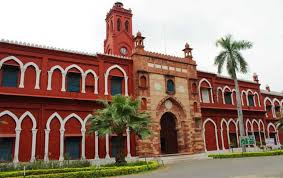NEW DELHI: The Supreme Court will on Friday pronounce its verdict on the minority status of Aligarh Muslim University (AMU) which has been in the eye of a storm since 2006 when the Allahabad High Court struck down a 1981 amendment that declared it a minority institution.
A seven-judge Constitution Bench led by Chief Justice of India DY Chandrachud had reserved its verdict on the AMU’s petition challenging the high court’s judgment on February 1 after eight days of marathon arguments.
Other judges on the Bench are Justice Sanjiv Khanna, Justice Surya Kant, Justice JB Pardiwala, Justice Dipankar Datta, Justice Manoj Misra and Justice Satish Chandra Sharma.
The AMU and the then UPA government had challenged the 2006 Allahabad High Court verdict in the Supreme Court. However, the BJP-led NDA government in 2016 told the top court that it would withdraw the appeal filed by its predecessor government as “the previous stand was wrong”.
The AMU has claimed its minority status under Article 30 of the Constitution which empowers religious and linguistic minorities to establish and administer educational institutions.
Noting that Article 30 of the Constitution was not intended to “ghettoise the minority”, the Supreme Court had wondered during the hearing if it mattered whether the AMU was a minority institution or not when it has continued to be an institute of national importance without the minority tag.
If the Supreme Court finally declared AMU a minority institution, SCs, STs and OBCs will not get reservation in admission. The verdict would set a judicial precedent for a similar legal battle over the status for the Jamia Millia Islamia University, which was declared a minority institution during the UPA government in 2011.
The Bench has to test the correctness of the 2006 Allahabad High Court verdict that said AMU was not a minority institution. The HC verdict was based on a 1967 Constitution Bench judgment in ‘S Azeez Basha versus Union of India’ that held that since AMU was a central university, it can’t be considered a minority institution.
The issue was referred to a seven-judge Constitution Bench on February 12, 2019. A similar reference was also made in 1981.
Noting that an institute of national importance must reflect the national character, the Centre had contended that even without reservation around 70 to 80 per cent students studying at Aligarh Muslim University (AMU) were Muslims.
However, the Supreme Court had said there was nothing “fundamentally inconsistent” with a minority institution being an institution of national importance.
The top court had on January 24 expressed surprise over the Centre not defending a 1981 amendment to the AMU Act on its minority status, saying the government has to stand by parliamentary amendments. It had also said that an educational institution wasn’t barred from enjoying minority status merely because it’s regulated by a statute under Article 30 of the Constitution.


